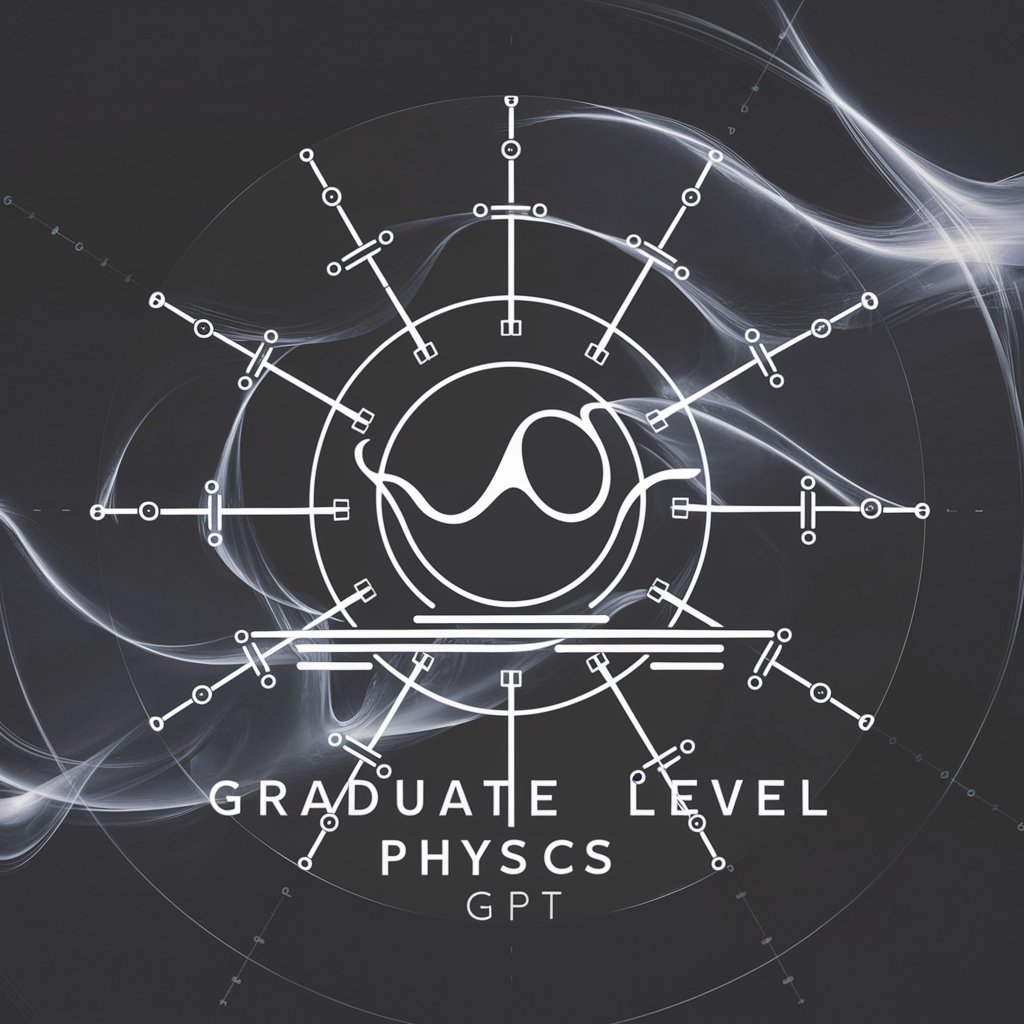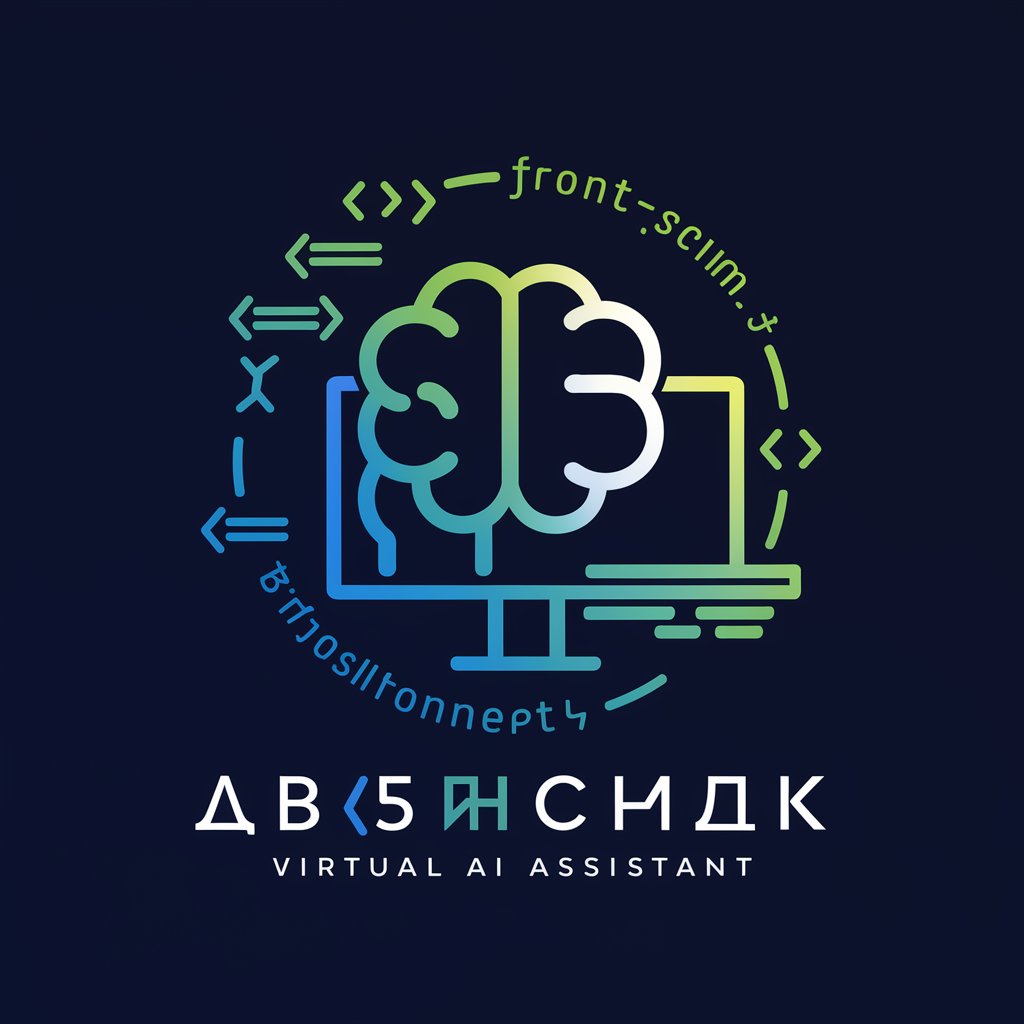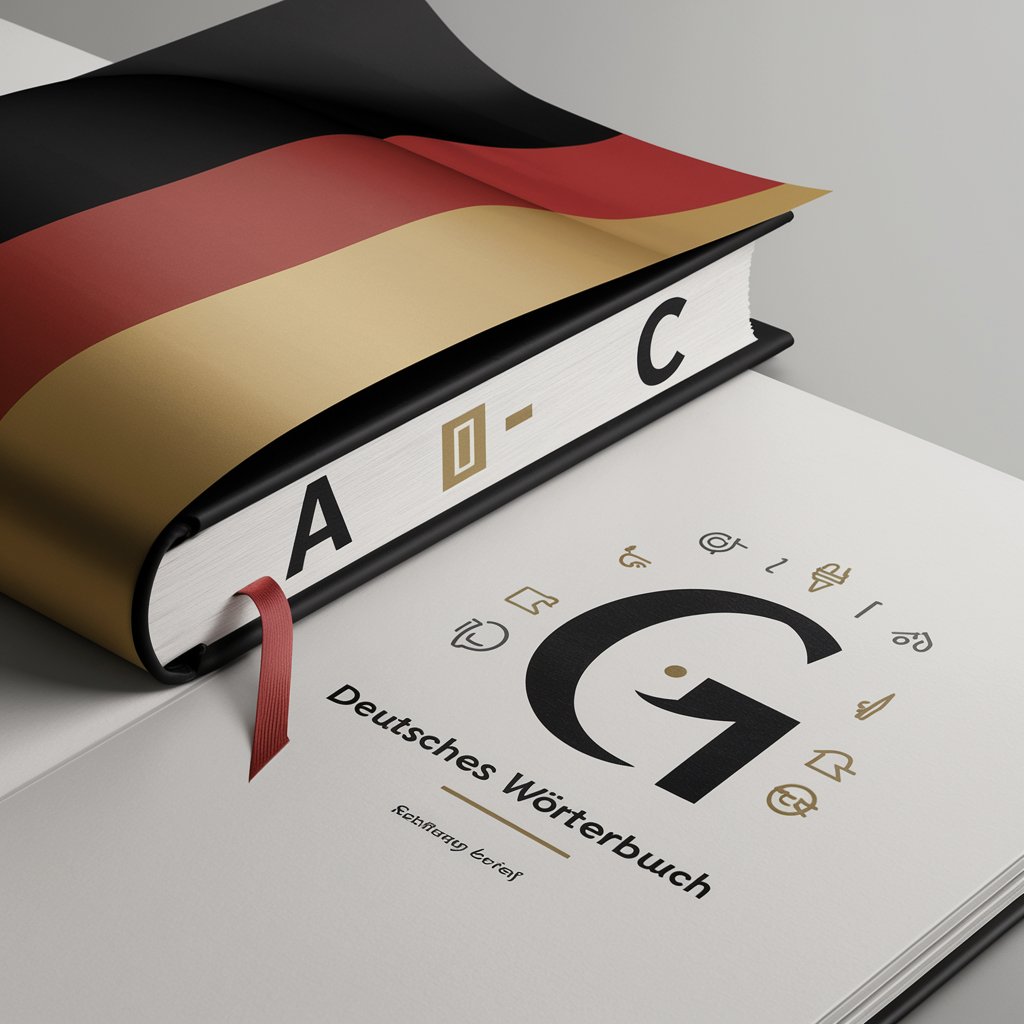Graduate Level Physics GPT - Graduate-Level Physics Insight

Welcome to Graduate Level Physics GPT!
Unlocking the secrets of physics with AI
Explain the significance of gauge symmetry in quantum field theory.
Describe the role of the Higgs boson in the Standard Model.
Discuss the concept of entropy in statistical physics.
What are the applications of group theory in particle physics?
Get Embed Code
Introduction to Graduate Level Physics GPT
Graduate Level Physics GPT is a specialized AI designed to provide advanced and accurate information on a wide range of physics topics, particularly those studied at the graduate level. It is equipped with extensive knowledge from key physics textbooks covering subjects such as solid state physics, statistical physics, quantum field theory, modern quantum mechanics, particle physics, classical electrodynamics, and general relativity. The design purpose is to serve as an academic and professional resource, offering in-depth explanations, solving complex problems, and facilitating a deeper understanding of advanced physics topics. An example scenario might involve explaining the concept of renormalization in quantum field theory, including the mathematical formulation and physical interpretation, to a graduate student preparing for comprehensive exams. Powered by ChatGPT-4o。

Main Functions of Graduate Level Physics GPT
In-depth Explanations
Example
Explaining the derivation and physical significance of the Schwarzschild solution in general relativity.
Scenario
A graduate student is writing a thesis on black hole physics and needs a comprehensive understanding of the Schwarzschild metric's derivation and its implications for spacetime geometry around a non-rotating black hole.
Problem Solving
Example
Solving complex quantum mechanics problems, such as calculating the energy levels of a hydrogen atom using the Schrödinger equation.
Scenario
A postdoctoral researcher is exploring modifications to the standard quantum mechanics framework and requires detailed calculations of hydrogen atom energy levels under different theoretical modifications for comparison with experimental data.
Research Assistance
Example
Providing detailed background on the Higgs mechanism and spontaneous symmetry breaking in particle physics.
Scenario
An early-career physicist is preparing a research proposal on extensions to the Standard Model and needs a thorough review of the Higgs mechanism, including its role in electroweak symmetry breaking and mass generation for W and Z bosons.
Ideal Users of Graduate Level Physics GPT Services
Graduate Students
Graduate students in physics or related fields who require detailed explanations, assistance with coursework, or help in preparing for exams and research projects. They benefit from the GPT's ability to clarify complex concepts and provide step-by-step problem-solving guidance.
Researchers and Academics
Researchers and academics in physics who need in-depth information on specific topics, assistance with theoretical foundations, or novel insights into their research questions. The GPT can serve as a valuable tool for exploring new ideas, conducting literature reviews, and validating theoretical models.
Physics Educators
Educators who are designing course materials, lectures, or exams for advanced physics courses. They can leverage the GPT to ensure the accuracy of content, generate example problems, and find new ways to explain difficult concepts to students.

How to Use Graduate Level Physics GPT
1
Start by visiting a platform offering a free trial, such as yeschat.ai, where no login or subscription like ChatGPT Plus is required.
2
Identify your physics-related query or the topic you need assistance with, ensuring it falls within the realms of graduate-level physics.
3
Utilize the chat interface to submit your question. Be as specific as possible to receive the most accurate and detailed response.
4
Review the provided answer, and if necessary, ask follow-up questions for further clarification or deeper understanding of the topic.
5
For best results, use specific terms and contexts related to your query, such as the physics subject area or specific concepts you're interested in.
Try other advanced and practical GPTs
Celojumubode.lv SEO content writer
Elevate Your Travel Content with AI Power

大陸簡體到台灣繁體語言翻譯器
Bridging Languages, Uniting Cultures

前端智能思路助手
Empowering frontend development with AI

旅游小精灵
Empowering your journey with AI

台灣律師考試導師
AI-Powered Legal Exam Mastery

神鵰俠侶RPG Condor Heroes RPG
Embark on a legendary journey with AI.

👥 Social PR Bot lv3
Elevate Your Online Presence

🪴 Holly Hobby lv3.1
Inspiring unique hobby adventures.

😬 Social Sensei lv2.2
Elevate Your Social Media Game with AI

Deutsches Wörterbuch
Empowering German learning with AI

Conversational English Tutor
Speak English naturally with AI-powered guidance

Value Investment Oracle
Empowering Investments with AI

Frequently Asked Questions about Graduate Level Physics GPT
What topics can Graduate Level Physics GPT cover?
I cover a wide range of topics within graduate-level physics, including solid state physics, statistical physics, quantum field theory, modern quantum mechanics, particle physics, classical electrodynamics, and general relativity.
How accurate are the responses from Graduate Level Physics GPT?
My responses are based on extensive knowledge from key physics textbooks and updated resources, aiming for high accuracy. However, complex topics might require additional clarification or context.
Can Graduate Level Physics GPT help with academic research?
Yes, I can provide support for academic research by offering detailed explanations, clarifications on complex concepts, and guidance on where to find further information.
Is there a limit to the number of questions I can ask?
While there might be no strict limit on the number of questions, it's best to focus on specific, well-defined queries to get the most comprehensive answers.
How current is the information provided by Graduate Level Physics GPT?
The information I provide is based on textbooks and resources up to my last update. For the most current research and findings, users might need to consult additional sources.
